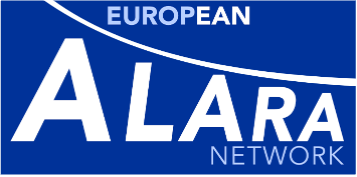C. Lefaure
In France there are currently more than 20,000 “Personnes Compétentes en Radioprotection” (PCR)/Radiation Protection Officers (RPO) and other radiation protection partners, such as occupational physicians involved in radiation protection. In the medical, research and non nuclear industry sectors, they can often feel isolated, not given appropriate recognition either within their organisations or by their colleagues, and sometimes struggle to keep up to date in regard to the continuing changes in regulations which have evolved significantly in recent years.
In order to address some of these concerns, a number of networks have recently been established at regional levels to provide a forum to share experiences and to learn from both each other and also from experts such as regulatory bodies and commercial companies. The desire to establish these networks began several years ago, but real progress was made during 2009 and 2010. At the beginning of 2011, eight networks have now been set up, covering approximately half of the 22 regions in France. One thousand individuals now participate in these networks, which continue to increase both in size and in the range of activities carried out. Typical activities include the holding of seminars and the creation of working groups, the establishment of web forums, sector specific training initiatives and the publication of newsletters. Seven of the networks are open to participants from all sectors (medical, research, industry) while the eight one is dedicated solely to participants in the medical sector.
In establishing these networks, the participants now feel that there is at last a forum in which their concerns can be addressed and their status among their colleagues, and within their organisations, is now better recognised. In recognition of the importance of participation at seminars, one of the networks now provides an official “continuing training certificate” to all attendees. It is interesting to note that this network is the only one to regularly receive participants from the industrial sector. Three of the networks also have the support of an important public institution, such as a regional hospital or a university. In addition to promoting and facilitating the exchange of information between members, the networks also play an invaluable role in providing data and feedback on topics to the IAEA and other bodies on issues such as incidents for the RELIR OTHEA system, data on doses and number of procedures in interventional cardiology services and in industrial radiography companies. This is a great benefit to the IAEA, and other organisation, which would otherwise have difficulties collecting such data.
The active participation in such networks is now recognised by the French regulatory bodies (ASN and Ministry of Labour) as being extremely important and consideration is being given to making such participation a positive criterion for the renewal of the PCR certification. Furthermore, the competent authorities have also discussed the assistance they could bring to the creation of new networks and ensuring the life of the existing ones (further information can be found on the ASN website). The next step in this initiative is for these networks to be coordinated at a national level bringing together all the pilots of the regional networks.
In light of this recognition and support, further development of the current networks and the appearance of new networks to cover all parts of France are anticipated. However, it may not be possible to include each and every one of the 20000 players currently involved in radiation protection in these networks, particularly those outside the medical sector. The existence of Web forums will help to reach some of them, but Imagination, the key to all of these networks, will have to find new ways to involving everyone in the years to come.
